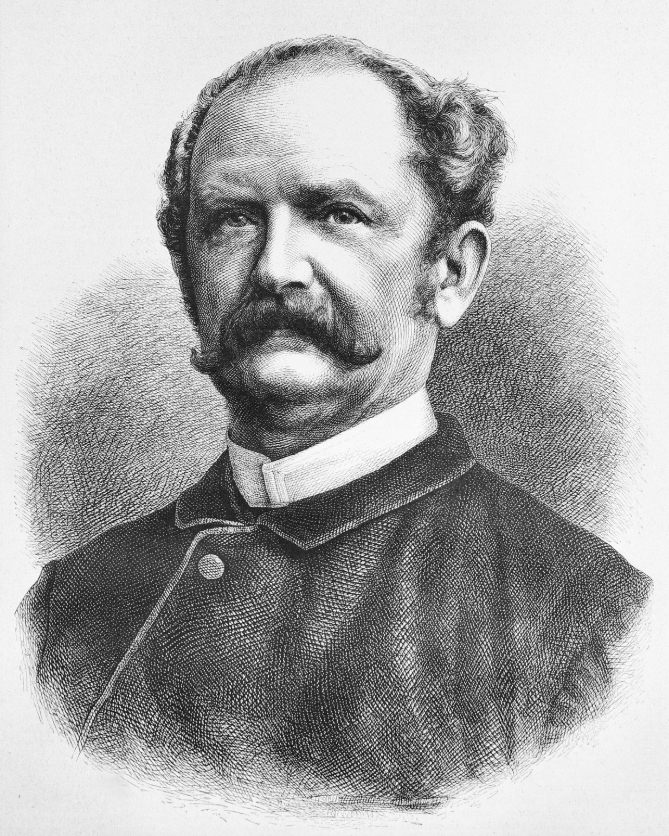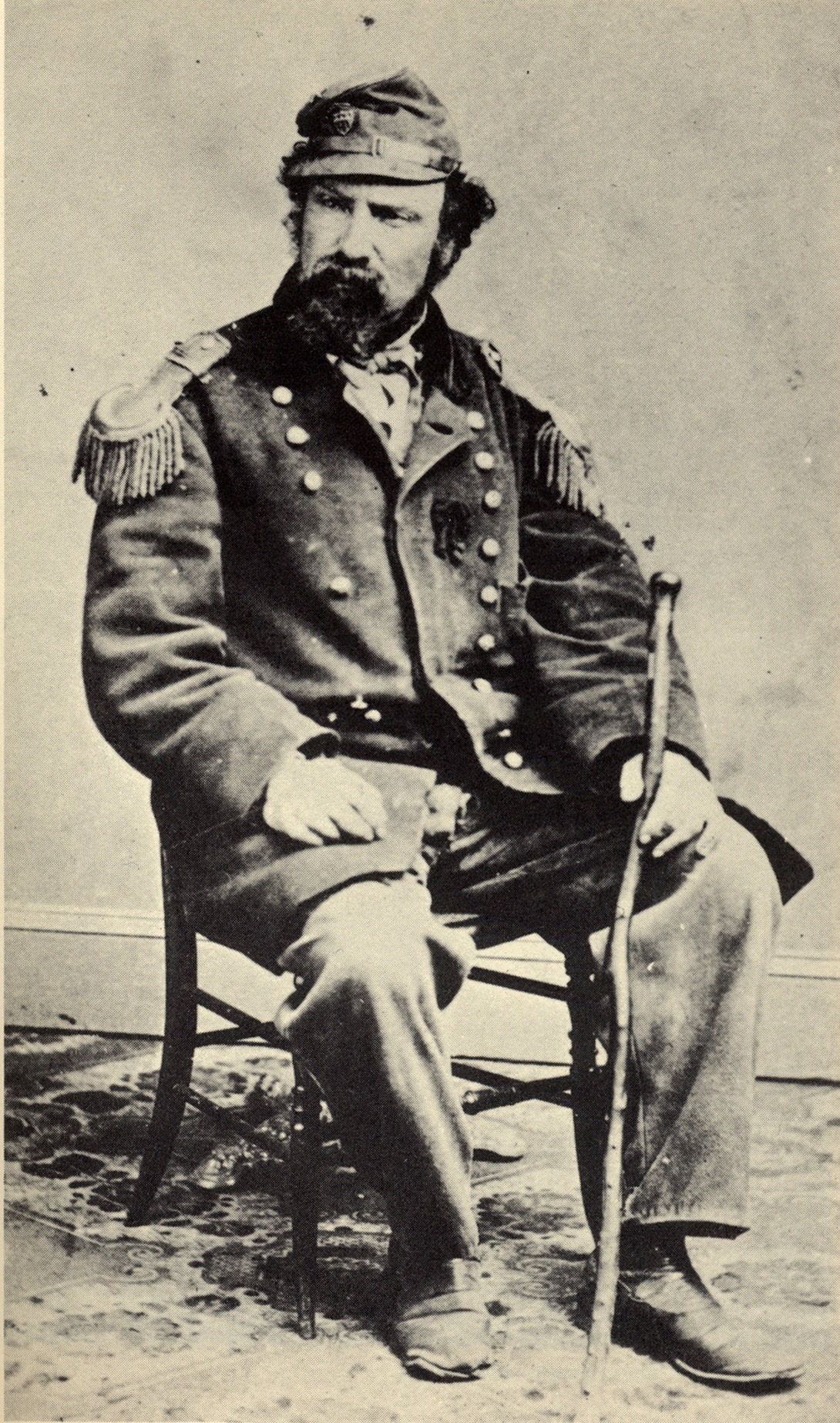Emperor Norton Addressed the European Trade Crisis of 1870 With an Offer of Imperial Bonds
IN 1869 OR 1870, Emperor Norton befriended a young German writer named Theodor Kirchhoff.
Theodor Kirchhoff (1828–1899), c.1880. Source: Wikipedia.
Based on San Francisco directory listings and other evidence, it appears that Kirchhoff had arrived in San Francisco sometime in early 1869.
Theodor Kirchhoff had — or made — connections to a German-language weekly magazine, Die Gartenlaube — often translated as The Gazebo — that was founded and originally published in Leipzig by Ernst Keil. During the period when our story takes place, Die Gartenlaube was the most widely read magazine in Germany.
In July 1869, Die Gartenlaube published Kirchhoff’s short profile of “Norton der Erste, der Kaiser von den Vereinigten Staaten.” The piece, datelined June 1869, appeared in a regular back-of-the-magazine section titled “Blätter und Blüthen,” which translates as “Leaves and Flowers.”
A few months later, in November 1869, the back of the magazine featured another of Kirchhoff’s dispatches about Emperor Norton. This time, Kirchhoff related a personal encounter with the Emperor. It seems that Emperor Norton, having heard about the earlier profile, requested a translation then quickly insisted that a correction be published, since the piece had neglected to mention that he was not only Emperor of the United States but Protector of Mexico as well.
In July 1870, the Emperor made a third appearance in the “Blätter und Blüthen” section. This time, the information — about a Proclamation the Emperor issued in April 1870 — was uncredited. But, it stands to reason that Kirchhoff was the author of this communication, too.
:: :: ::
THIS BRINGS US to the fourth of Theodor Kirchhoff’s pieces about Emperor Norton, which Die Gartenlaube published in November 1870.
July 1870 had seen the start of the Franco-Prussian War, which would last for six months.
The Emperor was concerned both about the conflict itself and about the war’s negative impacts on trade.
In the translation below — in italics below the following image of the original item — you can see one way that the Emperor sought to address the matter. *
“Kaiser Norton,” by Theodor Kirchhoff, in the German-language weekly magazine Die Gartenlaube, No. 47, 1870, p.791. The item begins below the engraving of the Emperor. Source: Wikisource. For an enlargeable scan, click here.
[Emphases below the title are added.]
Emperor Norton. Our readers surely still remember the notices in nos. 32 and 42 of our paper’s 1869 issues, which first reported the existence of a mighty potentate in San Francisco. The editor of the Gartenlaube just now received a very interesting letter from California, which we may not withhold from the public given the subject’s importance. It reads:
San Francisco, early October 1870.
I take the liberty, dear sir, to present you with an enclosed bond certificate issued in your name by Norton the First, Emperor of the United States and Protector of Mexico. His Majesty wishes, in consideration of the general trade crisis caused by the Franco-German war, to provide all capitalists an opportunity to safely invest their funds and has therefore issued these treasury bills. In San Francisco, the rich wholesale traders as well as the primary banking companies have taken this splendid offering with thanks, and one already can see the Emperor’s treasury bills almost in every one of their offices, framed above their iron safes. His Majesty the Emperor would like to see these bills also listed on European stock exchanges.
The Franco-German war has aroused His Majesty's extraordinary dissatisfaction, and He is endeavored to call a halt to the bloodshed. Thus He already has dispatched a strongly-worded telegram to Wilhelm of Prussia and soon will condescend to issue some threats to Bismarck as well and order him to make peace.
To you, dear Mister Keil, the Emperor also sends His portrait, signed in His own hand, as token of His particular goodwill, through the intermediation of
Your very devoted,
Theodor Kirchhoff
The treasury bill, printed with red letters — which, in addition to the autograph signature and seal of the Emperor, features an illustration of a fireproof safe guarded by a dog — reads:
The amount, with interest, to be converted into 7 percent Bonds in 1880, or payable by the Agents of our Private Estate in case the Government of Norton the First does not hold firm.
Norton the First,
Emperor of the United States and Protector of Mexico.
:: :: ::
DID THE EMPEROR make a similar overture to one or more publishers in France? One can’t help but wonder.
But, consider for a moment the imperial note described is this item published in November 1870 — but reporting a cover letter and a note that actually was signed and sent in early October.
The earliest of Emperor Norton’s imperial promissory notes were printed in red ink and were designed as receipts — with a separate line for writing in the name of the recipient.
In advance of its recent auction of a 50-cent Norton note signed and dated 1 August 1878, Kagin’s, the highly respected dealer and auctioneer of rare American currency and coin, issued a press release stating, in part:
The earliest 50-cent note to survive carries the date November 11, 1870. Printed in bright red, it shows a large Columbia in front of a San Francisco scene. A dog, presumably Norton’s, lies next to a safe.
So, for historians and collectors of the Emperor’s notes, what should be very intriguing indeed is the prospect of a red-inked October 1870 note made out to Ernst Keil and featuring “an illustration of a fireproof safe guarded by a dog.”
Presumably, this note — like the earliest-known note from November 1870 — was designed and printed by the firm of Cuddy & Hughes.
If this note still exists, it surely is the earliest and rarest Norton note out there.
:: :: ::
AS TO THE “PORTRAIT, signed in his own hand” that Emperor Norton sent via Theodor Kirchhoff to “dear Mr. Keil” …
The engraving that appeared in Die Gartenlaube was created by Johann Carl Wilhelm Aarland, of Leipzig. It seems most likely that what the Emperor sent to Ernst Keil was a photograph taken by the Bradley & Rulofson studio — and that Aarland drafted a likeness based on that.
He did a wonderful job.
“Norton der Erste, Kaiser der Vereinigten Staaten und Protector von Mexico.” Illustration by Johann Carl Wilhelm Aarland (1822–1906). Originally published in Die Gartenlaube, No. 47, November 1870, p.791. Image source: Wikimedia Commons. Original publication: Wikisource.
* Special thanks to Alexander Nowack, of Berlin, for helpful assistance in translating the original German text.
:: :: ::
For an archive of all of the Trust’s blog posts and a complete listing of search tags, please click here.
Search our blog...




